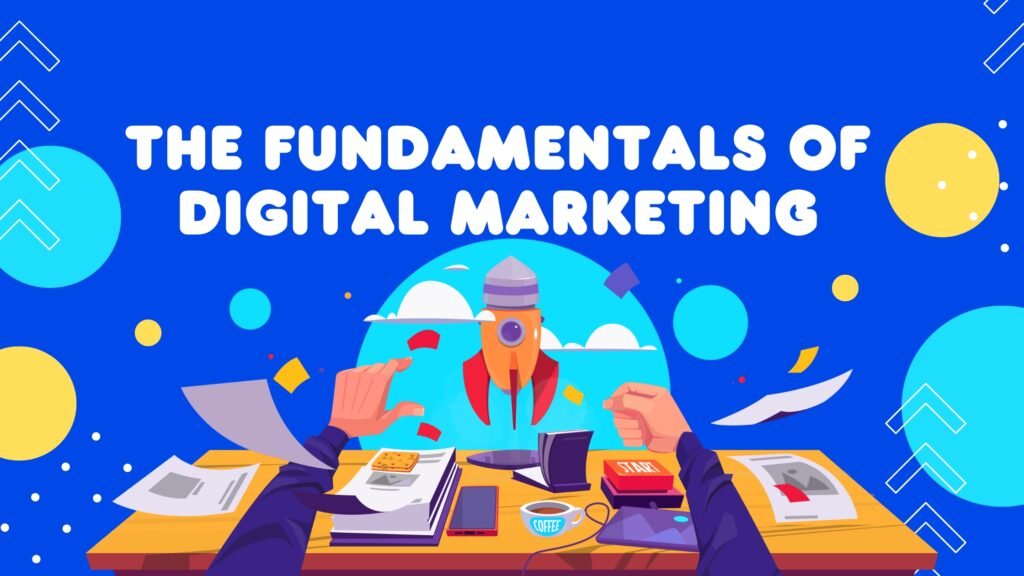
The fascinating journey of digital marketing began in the 1990s and has evolved rapidly with the advent of the internet and technological advancements. The term “Digital Marketing” was first used in the 1990s, marking the beginning of an era where information became readily accessible, but sharing it was not yet possible.
A significant milestone in the history of digital marketing was the creation of the first clickable web banner, which went live in 1993. This marked the beginning of the transition to the digital era of marketing. HotWired, a digital publication, purchased a few banner ads for their advertising, which led to the start of digital advertising.
In 1994, new technologies started entering the digital marketplace. Yahoo, also known as “Jerry’s Guide to the World Wide Web” after its founder Jerry Yang, was launched. It received close to 1 million hits within the first year, prompting changes in the digital marketing space. Companies started optimizing their websites to pull in higher search engine rankings.
The birth of Google in 1998 and the advent of Web 2.0 in the early 2000s were other significant events. Web 2.0 allowed users to become more active participants, interacting with other users and businesses. This led to a surge in information flow volumes, and by 2004, internet advertising and marketing in the US alone brought in around $2.9 billion.
The rise of social networking sites, the introduction of the cookie, and the increasing use of mobile devices further transformed the industry. Today, digital marketing is a booming industry, with social media being a top online activity, and it continues to evolve with technological advancements.
Time Line

- 1990s: Advent of the Internet
- Late 1990s: Emergence of SEO
- Early 2000s: Rise of Google AdWords and PPC advertising
- Mid 2000s: Emergence of social media platforms (Facebook, Twitter, etc.)
- Late 2000s: Rise of content marketing and blogging
- Early 2010s: Mobile marketing and apps become popular
- Mid 2010s: Emergence of influencer marketing
- Late 2010s: Rise of AI and machine learning in marketing
- 2020s: Increased focus on data privacy and personalization
First Digital Banner Ever
The first clickable banner went live in 1993, marking a significant shift towards the digital era of marketing.

This shift was further propelled by the launch of new technologies and search engines like HotBot, LookSmart, and Alexa in 1996. However, it was the birth of Google in 1998 and the advent of Web 2.0 that truly revolutionised the digital marketing landscape. Web 2.0 allowed users to become active participants, interacting with other users and businesses, leading to a surge in information flow volumes.
The rise of social networking sites like MySpace and the introduction of the cookie further transformed the industry. Today, digital marketing is a booming industry, with social media being the top online activity in the US. The average American spends 37 minutes a day on social media, and 99% of digital marketers use Facebook to reach their audience.
Digital marketing has evolved from traditional marketing due to the evolution of technology and the emergence of new platforms. It allows brands to reach their target audience at a much lower cost with a better conversion rate. The digital market is in a constant state of flux, and it is expected to continue growing in the coming years with many new developments and changes in this exciting industry.
The five D’s of Digital Marketing
- Digital Devices
- Digital Content Platforms
- Digital Media,
- Digital Data,
- and Digital Technology.

Different types of digital marketing
- Content Promotion,
- Search Engine Marketing (SEO),
- Search Engine Marketing (SEM),
- Social Media Marketing (SMM),
- Affiliate Promotion,
- Email Marketing, and
- Instant Messaging Marketing.
Explore the one more dimension of Digital Marketing: Performance Marketing: An ROI-Driven Approach
The Evolution of Digital Marketing in the Next Decade
Looking ahead to the next decade, it’s tough to pinpoint the exact path digital marketing will take due to the swift pace of tech advancements. However, we can make educated guesses based on current trends and past evolution.
- AI and Machine Learning: These technologies will become even more integral to digital marketing. They’ll be used for tailoring customer experiences, predicting consumer habits, and automating routine tasks.
- Data Privacy: As data privacy concerns grow, marketers will need to be transparent about their data practices. Laws like GDPR and CCPA will shape these practices, and businesses will need to prioritise data security.
- Voice Search: With the rise of digital assistants like Alexa and Siri, voice search will become a key part of marketing strategies. Brands will need to optimise their content for voice search.
- AR and VR: These technologies offer new ways to provide immersive customer experiences. They can be used for virtual tours, product demos, or to enhance online shopping experiences.
- Video Marketing: Video content is already a powerful tool in digital marketing, and its importance will only increase. Live streaming, interactive videos, and short-form videos will dominate.
- Social Media Evolution: New social media platforms will emerge, and existing ones will evolve. Marketers will need to stay on top of these changes.
- Sustainability: Consumers are increasingly making buying decisions based on a brand’s social responsibility. Digital marketing strategies will need to highlight a brand’s commitment to these issues.
- Omnichannel Marketing: Consumers interact with brands across multiple touchpoints. An integrated approach that provides a seamless customer experience across all channels will be crucial.
- Personalization: Consumers expect personalized experiences. Advances in technology will allow for even more customization in marketing messages.
- Blockchain Technology: Although primarily associated with cryptocurrencies, blockchain technology could offer solutions for transparency in digital marketing and help prevent fraud.
Remember, the most successful digital marketing strategies will be those that can adapt to changing technologies and consumer behaviours.
Conclusion
In conclusion, the realm of digital marketing presents a future that is undeniably thrilling, yet simultaneously demanding. As we embark on this journey of digital metamorphosis, numerous possibilities stretch out before us. However, amidst these opportunities, the true key to triumph hinges on our capacity to evolve. Furthermore, our success is contingent upon our proactive efforts to innovate and consistently remain at the forefront of emerging trends. After all, in the fast-paced digital landscape, stagnation is not an option. Therefore, as we stand at this juncture, it’s imperative that we seize the moment, capitalise on the myriad opportunities, and wholeheartedly embrace the dynamic shifts of the digital age.
Topics You May Like
The Revolution of Digital Marketing: The AI Impact
Performance Marketing for Digital Success
The Fundamentals of Digital Marketing
Understanding Cost Per Action (CPA) in Performance Marketing
Leveraging Data in Performance Marketing
Unraveling the Marketing Maze: Performance Marketing vs. Brand Marketing



Greetings. I know this is somewhat off-topic, but I was wondering if you knew where I could get a captcha plugin for my comment form? I’m using the same blog platform like yours, and I’m having difficulty finding one? Thanks a lot.
Hello! It’s great to see your engagement on my blog. Captcha plugins are indeed a useful tool to prevent spam and ensure the security of your comment form. I’d be happy to help you out with this.
For the platform we’re using, there are a few reliable captcha plugins you can consider:
1.reCAPTCHA by Google: This is one of the most popular and trusted captcha solutions. It’s effective at distinguishing between human users and bots, and it’s quite user-friendly. You can find the official plugin in the WordPress Plugin Repository.
2.Really Simple CAPTCHA: As the name suggests, this plugin provides a simple and straightforward captcha solution. It’s designed to work seamlessly with the Contact Form 7 plugin, which is also widely used.
3.Akismet Anti-Spam: Although not a captcha plugin, Akismet is a powerful anti-spam tool. It filters out spam comments before they even appear on your site. It’s great for keeping your comment section clean.
When choosing a captcha plugin, consider factors like user experience, compatibility with your theme and other plugins, and the level of security it provides. It’s also a good idea to periodically review the effectiveness of the plugin you choose.
Remember that while captchas are helpful, they can sometimes be a minor inconvenience for genuine users. Striking a balance between security and user experience is key. If you’re experiencing any difficulties or have questions while setting up the plugin, don’t hesitate to reach out to the plugin’s support or community for assistance.
We hope this information helps you find the right captcha solution for your comment form. If you have any more questions or need further assistance, feel free to ask. Your dedication to maintaining the integrity of your comment section is commendable, and We are here to support you on this journey!